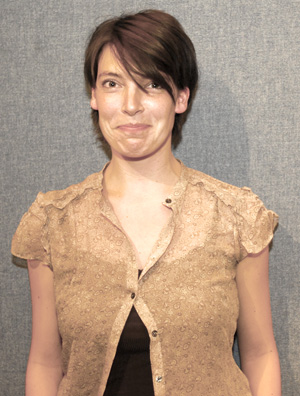Emily Maw
Raised in the west of England and in Wales, Maw earned a scholarship that was her ticket to higher education. Seeking out the disenfranchised, partly in response to her own experiences as a young girl, she spent her gap year working in an institution for destitute and abandoned women and children in Mumbai. At Edinburgh University, studying social history and law, she came across case studies of female genital mutilation, Yugoslavia war crimes and the death penalty in the United States and decided to work for people facing the death penalty. Her application to help with capital cases at the Louisiana Crisis Assistance Center was accepted and she left home, friends and family to come to the United States and align herself with the most despised people in our society: first-degree murderers and rapists.
Maw began her work in the deep South as a defense investigator tasked with trying to find something positive or at least humanizing to be said for a man charged with murder. She did this work for five years without pay, contributing to sparing ten people from execution. While devoting 30 to 40 hours a week to death penalty cases, Maw attended Tulane Law School where she was a leader in the Public Interest Law Foundation, contributed to the ACLU and LAMBDA, launched a books-for-prisoners program, helped to found the street law program and finished in the top 10 percent of her class, winning awards for her pro bono work. Maw was hired to expand the fledgling Innocence Project New Orleans into the State of Mississippi and is now its executive director. Just as she graduated, Louisiana passed a U.S. citizenship requirement, blocking Emily’s admission to the bar. Practicing as a lawyer in Mississippi, she is a plaintiff in a challenge to that Louisiana law.
Katrina brought chaos to an already teetering justice system, drowning court records and exonerating evidence, scattering witnesses and imposing further hardship on clients’ families. After a scramble to salvage the scraps of the Innocence Project from the floodwaters and a funding crisis made more acute by the enormity of local needs, Maw continues the work of the project, focusing solely on cases of life without parole in the two states with the highest incarceration rates in the country—and the world.
“As I write this (nomination),” says Clive Stafford Smith, “Emily Maw will doubtless be on the road somewhere in Mississippi, knocking on doors, digging through brown paper evidence bags in some dusty courthouse basement, baffling the locals with her English accent. She will be making sure that those who are wrongfully convicted will get their day in court…so that the world knows that mistakes in the criminal justice system cannot be tolerated and that they must be undone, one at a time.”
 Photo by Dorothea von Haeften
Photo by Dorothea von Haeften